Tom Wheeler is the author of “Mr. Lincoln’s T-Mails: How Abraham Lincoln Used the Telegraph to Win the Civil War” (HarperCollins 2006).
In August 1864, as the national election approached, Abraham Lincoln expected to lose and was planning for an orderly transition of power. One hundred fifty-six years later, the month of August 2020 sees a down-in-the-polls Donald Trump suggesting he might delay the election or not recognize its validity if he is defeated.
Donald Trump wants us to believe that expanding voting procedures to deal with a national crisis is unique and threatening. Yet, the circumstances of the 2020 election mirror in at least three ways those of 1864: The first was whether an election could be conducted amidst a national crisis. The second was the need to change voting laws. The third was the availability of a new technology to spread the president’s words.
Lincoln knew his opponent’s victory would mean the dissolution of the nation he had fought to preserve. The Democratic nominee, Union General George B. McClellan, formerly the army’s top general, was positioned as the man who could bring the war to an end by means of a negotiated peace.
On August 23, Lincoln presented the cabinet with a document he had prepared. “This morning, as for some days past, it seems exceedingly probable that this Administration will not be re-elected,” he wrote. “Then it will be my duty to so co-operate with the President elect, as to save the Union between the election and the inauguration; as he will have secured his election on such grounds that he cannot possibly save it afterwards.” Each cabinet member was expected to sign the document.
“The People are wild for peace,” New York’s powerful Republican Thurlow Weed wrote Secretary of State William Seward. “I told Mr. Lincoln that his re-election was an impossibility.” To a friend, Lincoln confided, “You think I don’t know I am going to be beaten? but I do, and unless some great change takes place, beaten badly.”[1]
Surely, the soldiers bearing the brunt of Lincoln’s decisions would support their old commander and peace, over Lincoln and war. But would those soldiers be able to vote?
Historically, state laws required being physically present at the polling station. Most states changed their laws so that soldiers and sailors could vote remotely. But five states—Indiana, Illinois, Delaware, New Jersey, and Oregon—continued the no absentee tradition. Among other effects, this meant that Abraham Lincoln was unable to vote for his own reelection since he could not leave Washington to return to Illinois.
Just as today, the scramble to change the voting laws to allow for the extenuating circumstances became political. In some states, fearing the unknown, Democrats blocked the reform.
The new voting procedures also created confusion. Some states allowed soldiers to mail in their ballots, while other states sent delegations to the troops to collect their votes. New rules that were being tried for the first time and carried out in different ways would determine the fate of the nation.
Many Democrats felt confident the soldier vote would go their way. One Democratic newspaper publisher predicted, “We are as certain of two-thirds of that vote for General McClellan as the sun shines,”[2] Yet, Lincoln did not discourage the new voting practices.
Not only did Lincoln not attack the new voting methods, but he also facilitated the soldier franchise. On his instructions, the Secretary of War oversaw granting of furloughs to go home and vote to soldiers who were in hospitals or were otherwise unfit for field duty. The army even furnished the necessary transportation.[3]
This did not mean that Lincoln was passive in his reelection effort. In his own words he was “more of a politician than anything else”[4] and he used every political lever available. The relatively new telegraph played the role of today’s internet, fulfilling an insatiable demand for information. In response, Lincoln developed a sophisticated political information apparatus. For the first time, government agencies began producing press releases for distribution to local newspapers by telegraph. Lincoln sat down for an unprecedented number of one-on-one interviews with journalists that were then telegraphed to papers throughout the nation.[5] Like today, the president understood how the electronic network of the era reshaped political discourse.
In the end, as we all know, Lincoln won the 1864 election. He carried the vote of those who cast their ballot at home as well as the soldier vote in the field. Some argue that Lincoln was pro-soldier vote in the belief it would help him. In sharp contrast to today, however, his actions were in favor of the franchise. In the face of expected defeat, Abraham Lincoln put into practice what he so eloquently spoke of a year earlier, that we are a “government by the people.”
[1] David Herbert Donald, Lincoln, Simon & Schuster, 1996, p. 529
[2] Doris Kearns Goodwin, Team of Rivals, Simon & Schuster, 2005, p. 663
[3] Official Records, Series 1, vol. 39 (Part III), p. 603
[4] Roy Basler, ed., The Collected Works of Abraham Lincoln, Rutgers University Press, 1953, vol. VII, p. 398
[5] Tom Wheeler, Mr. Lincoln’s T-Mails, HarperCollins, 2006, p. 165
The Brookings Institution is committed to quality, independence, and impact.
We are supported by a diverse array of funders. In line with our values and policies, each Brookings publication represents the sole views of its author(s).
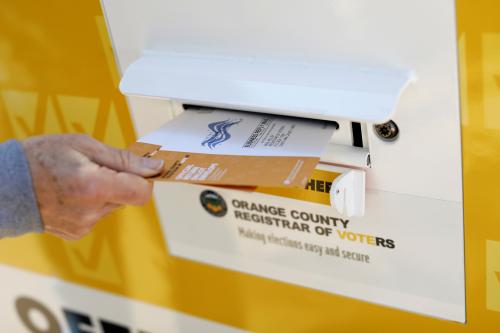
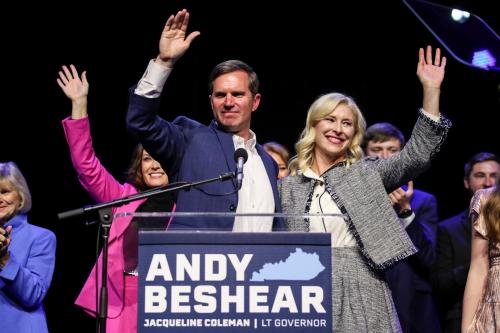
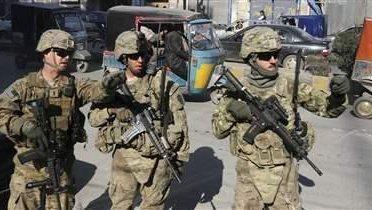

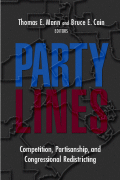
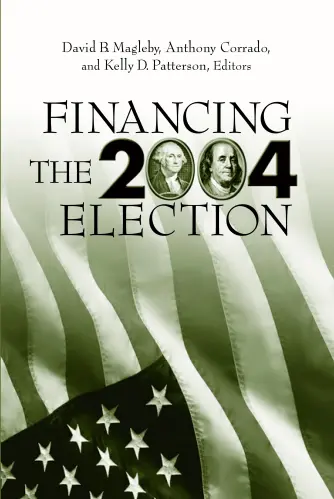




Commentary
August 1864 vs. August 2020: A contrast in leadership
August 13, 2020